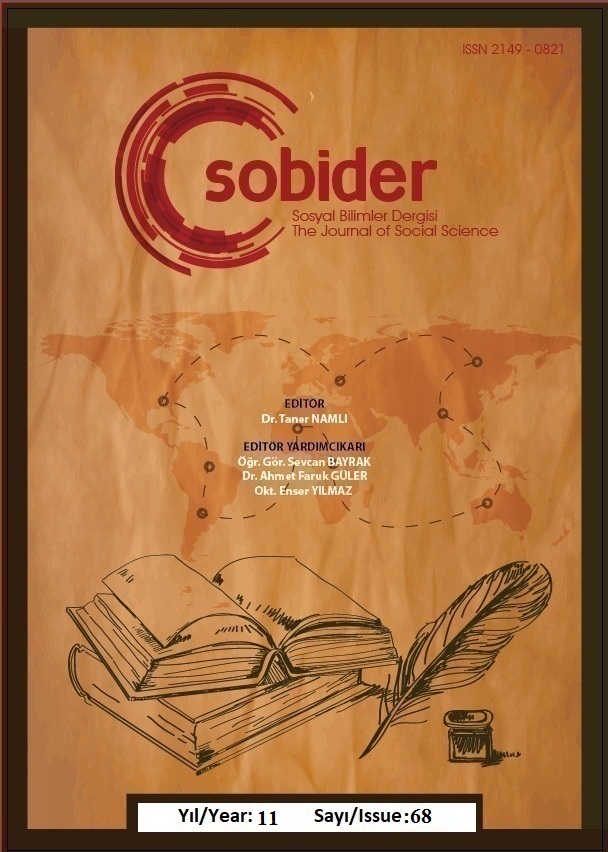MEDICAL BUREAUCRACIES AND THE ROLE OF SOCIAL PERCEPTION IN THE PROFESSIONALIZATION OF NURSING: A PHENOMENOLOGICAL STUDY CONDUCTED IN ISTANBUL
Author :
Abstract
Bu araştırma, tıp bürokrasilerinin ve toplumun hemşirelik algısının hemşirelik mesleğinin profesyonelleşme sürecine nasıl etki ettiğinin amlaşılması amacıyla yapılan niteliksel bir alan araştırmasıdır. Araştırmada veriler, Eylül 2018 ve Haziran 2019 tarihleri arasında, İstanbul’da bulunan farklı devlet hastaneleri ve özel hastanelerin çeşitli tıbbi birimlerinde görev yapmakta olan toplam 20 hemşireden, yüzyüze derinlemesine görüşme yoluyla toplanmıştır. Verilerin toplanmasında, konuyla ilgili literatür tarandıktan sonra oluşturulan 10 soruluk bir tanıtıcı kişisel bilgi formu ile 14 soruluk bir bireysel görüşme formu kullanılmıştır. Fenomenolojik bir yaklaşım esas alınarak yapılan bu araştırmada, hemşirelik mesleğinin profesyonelleşme sürecinde nasıl bir aşamada olduğu, bu süreçte hemşireliğin meslek olarak sağlık sistemindeki konumunun ve toplumun hemşire imajının hangi yönde ve nasıl etkili olduğu, hemşirelerin kendi gözlem ve deneyimleri üzerinden anlaşılmaya çalışılmıştır. Araştırmada elde edilen bulgulara göre hemşirelik mesleğinin profesyonelleşme sürecindeki en zorlaştırcı etkenin, toplumun hem hemşireliğin sağlık sistemindeki konumu hem de hemşire imajı üzerinde belirleyici olması nedeniyle, hemşirelerin görev tanımındaki büyük belirsizlikler olduğu sonucuna ulaşılmıştır. Bunun yanında mesleki örgütlenmenin zayıf olması, eğitim düzeyindeki farklılıklar ve hekim dışı “yardımcı” sağlık personeli kategorisinde yer almanın hemşireliğin profesyonelleşmesini zorlaştıran etkileri arttırdığı görülmüştür.
Keywords
Abstract
This research is a qualitative field study conducted to investigate how the nursing perception of
medical bureaucracies and society affects the professionalization process of the nursing
profession. In the research, data were collected through in-depth face-to-face interviews with 20 nurses
working in different medical departments of public and private hospitals in Istanbul between
September 2018 and June 2019. In order to collect the data, after reviewing the relevant
literature, an introductory personal information form, consisting of 10 questions and an individual
interview form, consisting of 14 questions were given. The study, which is based on a
phenomenological approach, tries to understand how the nursing profession is in the
professionalization process, the position of nursing in the health system as a profession, and
how to be influential on the nursing image of the society by viewing and understanding the nurses' own observations and
experiences. According to the findings of the study, the most difficult factor in the
professionalization process of the nursing profession is that, because it is determinative of
the ambiguous position of nursing in the health system and the erroneous image of the nurse in
society, there are significant uncertainties in the job description of nurses. In addition, it is seen that the
weakness of professional nurse organizations, the differences in education levels, and being seen in the
category of non-physician “assistant” health personnel have effects that make it difficult to
professionalize nursing.





